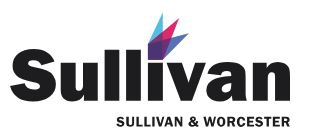The 2012 Jumpstart Our Business Startup Act (JOBS Act) opened the door to widespread use of crowdfunding for financing new projects and ideas. As a result of the JOBS Act, the use of crowdfunding platforms has increased exponentially. If you are considering a crowdfunding platform for your new venture, or if you are contemplating investing in a crowd-funded project, attention to intellectual property protection is critical. Here are a few simple ideas to keep in mind:
- Patents—Disclosing the details of an invention before filing a patent application may bar patent protection. For example, Kickstarter.com requires projects that involve the manufacture and distribution of “gadgets” to “show as much as they can about how they’re going to make their project, including things like a production plan, an estimated schedule, and any details you can provide for backers.” https://www.kickstarter.com/rules/prototypes. Also, with the passage of the America Invents Act, the U.S. is now a “first to file” country instead of a “first to invent.” To preserve rights, patent applications should be filed as early as possible. By filing a patent application prior to disclosing a project, the inventor can preserve patent rights and potentially avoid problems with both the statutory bar and potential conflicting applications. While U.S. patent law gives the inventor a year after disclosure in which to file, the same is not true in most of the rest of the world where a prefiling disclosure bars patent protection. Keep this in mind for projects that will rely on foreign marketing and revenue for their success.
- Trademarks—Use of a trademark on a business plan or project description is not “trademark use” for purposes of establishing a date of first use. Thus, posting a project with a proposed trademark could serves as an open invitation for trademark pirates in the U.S. and abroad to file for registration first. The same is true with respect to domain name registration. Consider filing a U.S. trademark application based on “intent to use” prior to making a public disclosure of your project. The ITU filing also gives you a six month priority period during which you can file for foreign protection and still obtain the benefit of your U.S. filing date. After these six months pass registration becomes largely a “first come, first served” proposition in most of the rest of the world where rights are based on who files first and not on who is the first to use a mark. For an painful example of what can go wrong, see our post on “Perfect Your Foreign Trademark Rights Early or Risk Losing Them Forever.”
- Copyrights—Copyright commences once a work is fixed in a tangible medium of expression. Registration is not necessary for protection, although it is a prerequisite for a domestic copyright owner who wishes to file suit for infringement in the U.S. If you are going to post copyrighted works in connection with your project disclosure or business plan, and if those works represent at least some of the value proposition for the project or business, consider filing for copyright registration. If you plan to use images, music, or other content from third-party sources in your proposal, be sure to obtain appropriate licensing/permission prior to posting such works publicly. Absent such licensing or permission there is a good chance that you are committing copyright infringement since your use of those works is obviously commercial in nature.
Depending on the project, the IP issues could be substantially more complex. Potential investors’ due diligence should include an analysis of the IP risk and/or exposure presented by the public proposal as the success or failure of the idea may well hinge on the strength and protection of those IP rights. Our attorneys are available to help with an analysis of potential IP risk and to create and implement a strategy to effectively and economically manage that risk.



